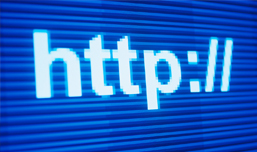Social media in the pharmaceutical sector
June 2013
A recent survey by Accenture of sales and marketing executives at large pharmaceutical companies, called "Life in the New Normal: The Customer Engagement Revolution" shows that one in four interactions with doctors, healthcare providers and patients in the US is now digital. This is expected to increase by at least 26% in the next two years and the benefits are clear - highly focused marketing, increased geographical reach, greater customer engagement and reduced marketing costs being just some examples.
Whilst other industries have immersed themselves in the use of new technologies and marketing channels to promote their products, the pharmaceutical industry has taken a far more cautious approach. One reason for this is that the industry is highly regulated, meaning that some of the attractions of social media – greater customer interaction and two-way communication – bring with them certain risks, such as patient confidentiality issues, off-label promotion and the possibility of triggering reporting obligations under pharmacovigilance regulations.
A highly regulated sector
 The promotion and advertising of medicinal products in the UK is governed by general laws on advertising and, more specifically, the Human Medicines Regulation 2012. This legislation is enforced by the MHRA but in practice, the industry operates under self-regulation in relation to the promotion of medicines. The self-regulatory regime is founded on codes of practice: the ABPI’s Code of Practice for the Promotion of Prescription-Only Medicines (the “ABPI Code”) and the PAGB’s Medicines Advertising Codes that relate to over-the-counter medicines.
The promotion and advertising of medicinal products in the UK is governed by general laws on advertising and, more specifically, the Human Medicines Regulation 2012. This legislation is enforced by the MHRA but in practice, the industry operates under self-regulation in relation to the promotion of medicines. The self-regulatory regime is founded on codes of practice: the ABPI’s Code of Practice for the Promotion of Prescription-Only Medicines (the “ABPI Code”) and the PAGB’s Medicines Advertising Codes that relate to over-the-counter medicines.
The ABPI Code is administered by the PMCPA (the Prescription Medicines Code of Practice Authority). The PMCPA issued specific guidance on “digital communications” in April 2011. It is clear from these guidelines that the use of social media must fit-in and comply with the existing regulations – it is not subject to any special rules. The PAGB Codes make the same point: the usual rules apply when using social media.
The challenge, therefore, is for companies to take the current regulatory framework, together with such additional specific guidance as there is, and apply it to social media.
When considering the use of social media in the sector, an important starting point is the general prohibition on advertising POMs to the public. The definitions of "advertisement" and "medicinal product" are broad: "Advertisement" covers all media channels and includes any activity "designed to promote the prescription, supply, sale or consumption of medicinal products"; "medicinal product" includes drugs used to treat or prevent disease, including homeopathic and herbal products.
When might a pharmaceutical company be responsible for social media content?
In brief, a company will be responsible for:
- any communications on its own website, discussion boards, Twitter feeds and third party “company” social media pages (such as the company’s Facebook page);
- its employees’ communications on social media channels in the course of employment, and also in their spare time where the communications relate to company products or business activities; and
- third party user generated content (“UGC”) on social media channels over which the company has control, or which the company sponsors.
What might a pharmaceutical company find itself liable for?
The list is long, and includes defamation, breach of confidence, breach of privacy, copyright infringement, improper use of a public electronics communications network, off-label promotion and failing to report adverse events, to name a few.
How can a pharmaceutical company mitigate the risks?
 The main risk arises from the user generated content posted in a forum for which the pharmaceutical company is, or is deemed to be, responsible. That being the case, the only way to eliminate the risk is to moderate all the content before it is posted – because once it is posted, it is out of your control.
The main risk arises from the user generated content posted in a forum for which the pharmaceutical company is, or is deemed to be, responsible. That being the case, the only way to eliminate the risk is to moderate all the content before it is posted – because once it is posted, it is out of your control.
However, moderating content before it is posted takes time and resource, and fundamentally undermines the real-time interaction that is associated with social media channels. So would it work to keep a careful eye on a site and take down content that went too far? Not according to the PMCPA guidance which suggests that a company will be liable for content that appears on a relevant site even if it is taken down relatively quickly.
In relation to blogs, the PMCPA guidance states that “companies should not sponsor such sites….. If they were intended, or could be reasonably expected, to discuss medicines and their uses as it would be impossible to guarantee their compliance with the Code”.
In trying to manage the risks for a pharmaceutical company associated with a social media channel, these are the main points to bear in mind:
- have in place a good social media policy, on which all employees receive regular training (although see below as to why this still may not be enough);
- think very carefully about whether to allow user generated content on any site or social media channel for which you are, and will be deemed by the relevant regulatory to be, responsible;
- if you do wish to allow user generated content, consider pre-moderation and have clear terms of use and rules about the sort of information that can and cannot be posted, and which allow you to take down material that breaches the terms; and
- take account of all the guidance available, such as the ABPI’s guidance notes on the management of adverse events and product complaints from digital media.
Will our social media policy protect us?
Not necessarily in relation to possible breaches of the ABPI Code, but it is still essential to have such a policy to help manage a range of other risks.
There have now been a number of rulings under the ABPI Code relating to the use of Twitter in a promotional context. In one case, a company was ruled in breach of the ABPI Code – for promotion of a prescription-only medicines to the public - despite the fact that there was an acknowledgement that the relevant tweet had been made in breach of the company’s social media policy by an “inexperienced” Twitter user. This effectively amounts to strict liability for the company.
The future
 Most, if not all, pharmaceutical companies now have an established online presence and over which – in relation to the UK at least - they have full editorial control. This level of control makes it relatively straightforward to comply with the regulations and codes concerning the promotion of medicinal products.
Most, if not all, pharmaceutical companies now have an established online presence and over which – in relation to the UK at least - they have full editorial control. This level of control makes it relatively straightforward to comply with the regulations and codes concerning the promotion of medicinal products.
Some pharmaceutical companies have pushed forward with social media on other (non-promotional) fronts, such as disease awareness campaigns. Others have been brave enough to open up their Facebook pages for users to leave comments – a calculated risk.
Companies in the sector have sought guidance from the regulators on how to approach the use of social media, and the frequent response is that “the same rules apply”. Despite having said that it would provide specific social media guidance, the FDA has produced very little guidance in this area so far. In the UK, the PMCPA has provided some helpful guidance demonstrating the application of the Code to certain social media channels.
It seems unlikely that there will be more bespoke guidance in the near future, which means that companies are best advised to apply the current rules as best they can. As a bare minimum, companies must ensure that they have in place robust social media policies on which their staff are properly trained and frequently reminded of the need to use social media with care.
If you have any questions on this article or would like to propose a subject to be addressed by Synapse please contact us.



"Whilst other industries have immersed themselves in the use of new technologies and marketing channels to promote their products, the pharmaceutical industry has taken a far more cautious approach."
"A comment posted by a patient describing the use of one of the company's products for an unlicensed indication could mean the company falling foul of the regulations."

